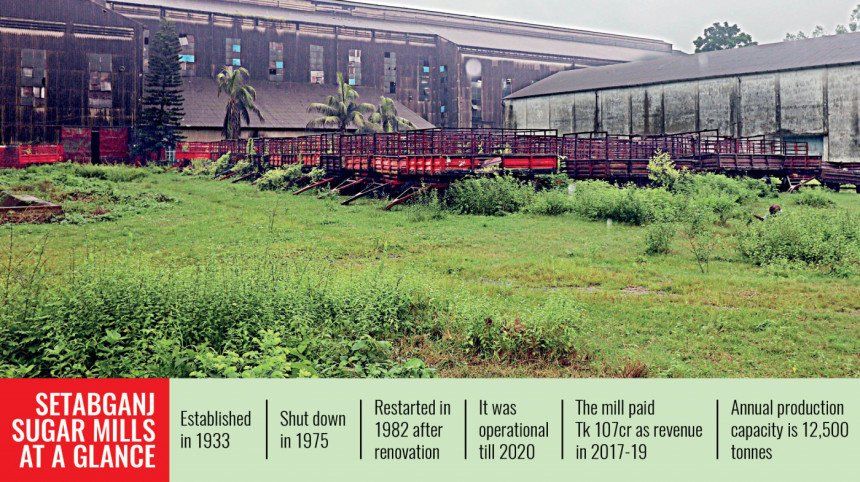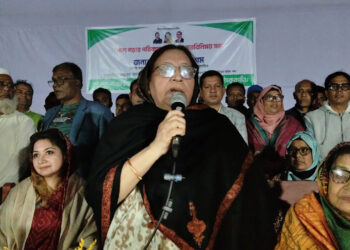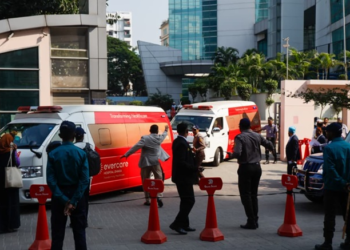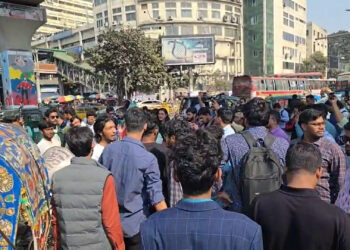After a four-year closing, Setabganj Sugar Mills in the northern Dinajpur district is getting ready to reopen, a decision that has been welcomed by local sugarcane farmers and former factory workers. Authorities expect the mill to be fully operational in two years. The mill’s managing director, Mohammad Abul Bashar, stated that the company is presently evaluating the supply of sugarcane and awaiting repairs to manufacturing machines. According to him, crushing activities might start up again this year or during the upcoming fiscal year 2025–2026 season.
“Sugarcane planting for the 2024-25 season has already begun,” according to the MD. “If we miss that, then the mill will resume in the 2025-26 season after repair and overhauling.” “We expect the mill to be fully operational within two years if planting and repairs proceed smoothly,” he stated. “Repair work will begin soon.” The Bangladesh Sugar and Food Industries Corporation (BSFIC) is in charge of 15 public sugar mills across the nation. Citing a lack of sugarcane supplies and ongoing losses, the previous Awami League government halted output at six mills, including Setabganj, in 2020. According to the authorities at the time, these mills would reopen following modernization and improvements.
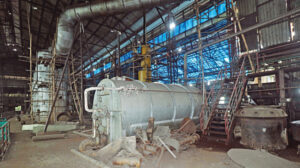
A taskforce was formed by the interim administration to review the mills following the August 2024 political transition. Later, in mid-December of last year, it was reported that Setabganj Sugar Mills would reopen. Former Setabganj Sugar Mills Workers’ Union president Amjad Hossain expressed his frustration with the sudden mill shutdown decision after 27 years of employment. We are pleased that it is reopening now.
Another worker, Prashanta Kumar, expressed gratitude to the government for the decision to reopen. “We are looking forward to resuming crushing operations as soon as possible.” Setabganj Sugar Mills was founded in 1933 on 3,783 acres of land in the Bochaganj municipality. It closed in 1975 as a result of worsening financial circumstances, but it reopened in 1982 following renovations and modernization. The sugar mill had an annual production capacity of 12,500 tons. In addition to sugar, the mill’s byproducts included bagasse, molasses, and organic fertilizers. It remained open until the 2019–2020 season, at which point it was shut down once more.
Local sugarcane farmers blamed the mill’s closure to politically motivated reasons. According to one of the farmers, Md. Wali, “The mill was completely functional when it was shut down. A few parties banded together to seize its assets. The Sugarcane Farmers’ Association’s general secretary, Mamun, stated that the farmers’ inability to supply sugar never caused production to stop. “Production costs were artificially inflated for showing higher losses,” he stated. Farmers are already getting ready for the upcoming planting season, according to Mamun, who made the news of the reopening. Adilur Rahman Khan, an industries adviser, paid a visit to the sugar factory on November 16 of last year. He declared that his ministry would fully support the restart of cane crushing.
Bangladesh needs 24 lakh tonnes of sugar a year, and as there is very little sugarcane produced domestically, imported sweetness provides almost 99 percent of the country’s needs. For local processing and marketing, five private refiners import raw sugar, mostly from Brazil.
Source: The Daily Star

